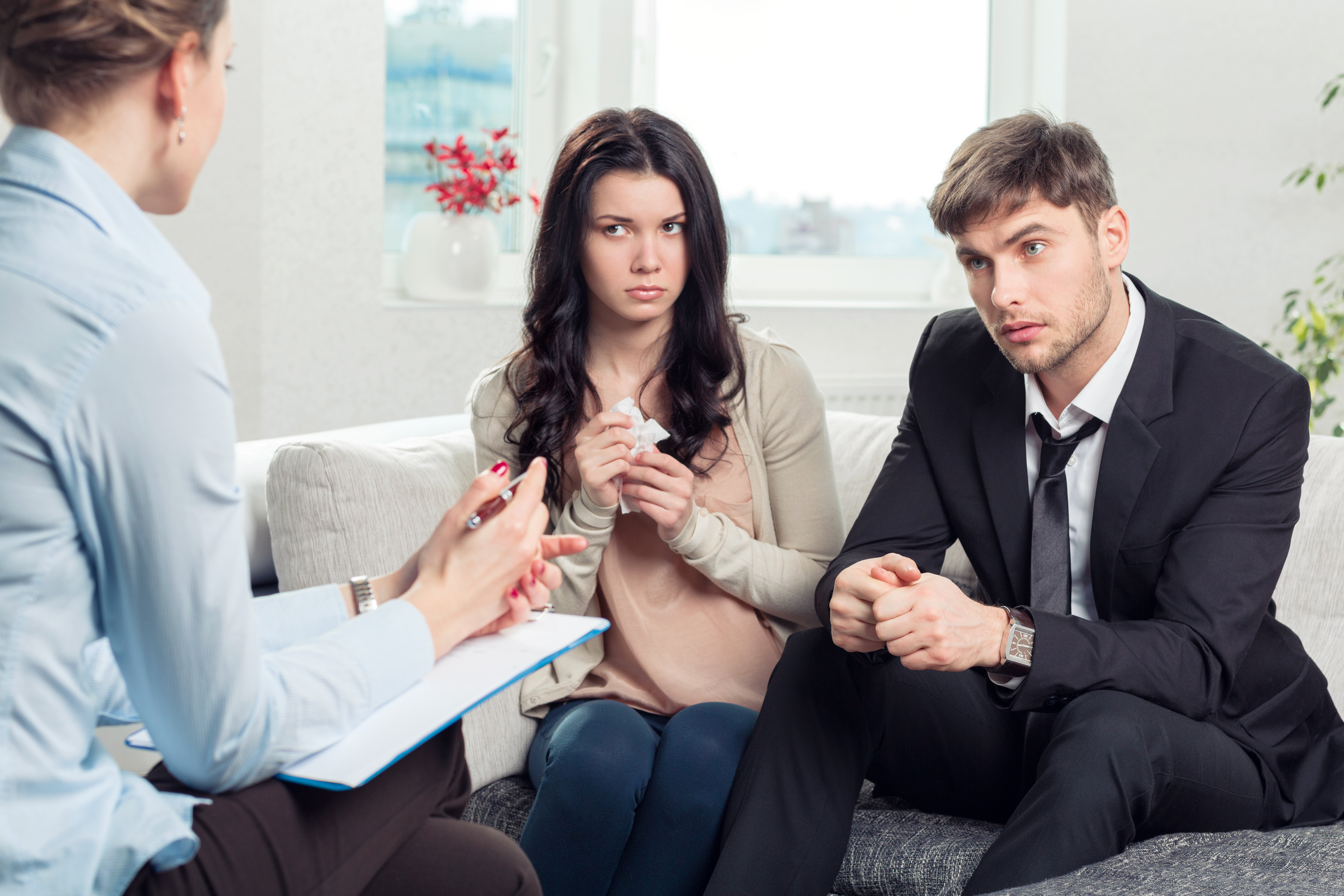With a Psychoanalytic Couple Therapy Approach: What Is Couple Therapy and Which Issues Does It Address?
Relationships carry not only the present experiences of two individuals but also childhood memories, family dynamics, patterns from the past, and unconscious processes. Many couples experience recurring conflicts yet struggle to understand the underlying reasons. Psychoanalytic couple therapy explores the emotional world beneath the surface and offers couples a space for deeper healing.
What Is Psychoanalytic Couple Therapy?
Psychoanalytic couple therapy aims to understand how unconscious processes shape relational dynamics. Conflicts in a relationship are often reflections of early experiences, parental relationships, and unprocessed emotions.
In this approach, the therapist explores:
- Relational patterns carried from the past
- Unconscious conflicts
- Roles projected onto one another
- Repetitive relational cycles
The aim is not just to solve surface-level conflicts but to reveal the internal processes that generate them.
Why Do Relationship Issues Stem From the Unconscious?
According to psychoanalytic theory, individuals carry the relational styles learned in childhood into adult life. This may manifest as:
- Excessive control from fear of abandonment
- Seeking constant reassurance due to feelings of inadequacy
- Avoiding conflict due to fear of criticism
- Oscillating between idealisation and disappointment
Psychoanalytic couple therapy sheds light on these emotional cycles.
What Does the Therapist Do in Psychoanalytic Couple Therapy?
The therapist focuses on the emotions, needs, and patterns beneath the couple’s words.
During the process:
- Transference and countertransference
- Unconscious expectations
- Repetitive arguments
- Suppressed emotions
- Projected roles
are explored.
This helps reveal deeper emotional needs behind surface complaints.
Which Issues Can Psychoanalytic Couple Therapy Address?
1. Repetitive Arguments
Recurring conflicts often stem from unmet emotional needs or underlying fears.
2. Emotional Distance
Past wounds, defences, and unexpressed emotions are examined.
3. Jealousy and Trust Issues
These feelings often reflect the individual's inner world rather than the partner.
4. Healing After Infidelity
Therapy explores the emotional dynamics underlying the rupture.
5. Roles and Power Struggles
Patterns such as giver–taker or pursuer–withdrawer originate from early experiences.
6. Thoughts of Separation
Unconscious dynamics behind separation are explored.
How Does the Therapy Process Progress?
Through regular sessions, the therapist helps couples understand relational cycles, emotional responses, and deeper needs. This brings emotional depth and insight to the relationship.
Conclusion
Psychoanalytic couple therapy helps couples understand the hidden emotional world beneath relational difficulties. This process strengthens the bond by fostering deeper understanding and connection.
Why do we cheat on our partners?
We tend to judge people who have affairs. But psychoanalyst Melike Kayhan says the causes of infidelity are far more profound - and unconscious - than we imagine
As a couples therapist I regularly see partners whose relationship - or marriage - is being destroyed by an affair. The ‘victim’ in this scenario has usually lost all trust in their partner or spouse; while the cheating partner feels guilty and powerless and hopes that I can help mend their broken relationship.
Rather than judging anyone, or offering a ‘quick fix’, my role is to help couples understand why the infidelity has taken place. Often, the reasons for someone cheating are far from what either partner in the relationship imagined.
The media loves to portray unfaithful spouses as bad people, or, as the tabloids delight in describing them, ‘Jezebels’ or ‘love rats’. This simplistic view only puts pressure on people, and in my experience, doesn’t do anything to stop them from cheating. So why DO people have affairs? And why, as I’ve observed first hand in my practice, does infidelity seem to be on the increase?
The hidden struggles that cause infidelity
Though it may be an unpalatable truth, an affair can increase sexual confidence and boost self-esteem. At the same time it’s likely to wreck a relationship that the cheating party may prize above all others. Why take the risk? The truth is that the reasons for our behaviour are often far more complex than we imagine.
This is why, in psychoanalytic terms, no behaviour can be truly understood without looking at a person’s life story, their relationships with others, the structural aspects of their personality, their fantasies, and their unconscious dynamics.
There’s no blunt instrument in this process, which is why I’d never suggest that an unfaithful partner is simply ‘acting out’, or dysfunctional. Nor, by the same token, would I suggest that he or she is acting in a ‘healthy’ or functional way.
What I've noticed, however, is that certain psychological themes often arise with infidelity, themes that psychoanalysts such as Freud identified and documented. Some seem bizarre, but it doesn't make them any less true. Here, based on my experiences, are the most common triggers for infidelity.
The ‘incestuous’ marriage
Perhaps the most common is a psychological phenomenon known as the incest taboo. Psychoanalysts believe that, long after we have separated from our parents, we are still searching for an omnipotent mother or father.
When our spouse takes on the part of a parent, by emotionally supporting us, loving us, and comforting us, they can unconsciously become a replacement for our mother or father. This is when a couple’s sex life can take on an illicit or prohibited nature. Desiring a partner can start to feel uncomfortable, and sadly this discomfort can be wrongly interpreted as a loss of desire for a partner. It is easy to see how a person struggling with these feelings might end up seeking sex outside marriage.
The ‘rebellious’ spouse
Then there are the individuals who have had a fraught relationship with their parents, one based on conflict and oppression. Naturally enough, when their spouse or partner in some way assumes the identity of a parent, their unconscious instinct is to kick back at them; to end the oppression.
One way of doing this is by having an affair. The cheating spouse is like the unruly adolescent hitting out at his parents for not showing him the love he deserves, or for making him feel dependent and threatening his sense of self.
In this way, attachment issues formed in childhood can wreak havoc on a marriage. Many unfaithful partners will take this surreal re-enactment of parental relationships further by unconsciously trying to get caught, so that, just as their mother or father once did, their husband or wife can now punish them and absolve their guilt.
Symbiotic relationships
Couples in symbiotic relationships are, as the old expression goes, “joined at the hip”. They go everywhere together and do everything together. Unconsciously angry and fearful at this erosion of self, partners in symbiotic relationships will often try to control each other. They will feel slighted by the smallest criticism, and “lessened” by the extreme emotional dependence in their relationship. Many partners will ‘solve’ this crisis by having an affair. The reliance on the other person won’t disappear, however, and the guilty party will often confess, in the hope that, like the misbehaving child, they'll be forgiven by the mother/father/spouse.
Emotional or Sexual Bisexuality
All of us possess psychological characteristics of both genders. In some people, however, there is a tug-of-war between these masculine and feminine traits, and these individuals often unconsciously release themselves from this struggle by having an affair. With two partners, they are free to express both sides of their personality, and, more often than not, to switch between assuming a more dominant and a more passive role in a relationship.
Social media, where the grass is always greener
Above are the psychological drivers that, in my opinion, trigger most affairs. But as to why there's been such a dramatic rise in extra-marital affairs in recent years - something I’ve noticed first-hand among my clients - I blame social media.
It’s not just that sites such as Twitter or Facebook make it easier to meet new people, or, as in the case of some unfaithful clients of mine, reconnect with old ones. It’s also that they fuel our narcissism, our sexual appetites, and our egos. The dating app Tinder has a staggering 50 million active users who spend an average of 90 minutes on the site every day.
We may feel happy in a relationship, but what if there’s a more attentive, understanding and sexually exciting partner out there for us, someone we can find at the click of a button?
The internet is making it harder for us to remain faithful. Needless to say the internet isn't going anywhere! There’s no easy answer to any of these problems. But I do believe that, the more we understand about infidelity, and the forces that drive us as human beings, the closer we will move to having the relationships we desire and deserve.
Why do we stay in painful relationships?
Psychotherapist & Psychoanalyst Melike Kayhan explores an intriguing question
LIFE AS A COUPLES THERAPIST
As a couples therapist, I often encounter partners in severe distress. I'll regularly find myself in a room with two people who are barely speaking, or, during early meetings, unable to have a conversation that doesn't become a shouting match.
We tend to think that other people have 'perfect' relationships. But the scenario above is incredibly common, and understandable when you consider that a relationship has to meet the hopes, needs and longings of two completely autonomous people. It's easy for things to go wrong.
What has always intrigued me, however, is just how far couples will go to preserve a relationship, even if it's causing them - and sometimes their children - terrible pain.
When I first started out as a couples counsellor I’d meet partners who appeared so mismatched I wondered how they'd got together. Did they have a sadomasochistic streak? And how had they been able to continue living together under such duress?
THE 'UNBEARABLE TERROR'
You won’t be surprised to learn that I'm not the only psychotherapist to have thought about our capacity to endure painful relationships.
Dr James Grotstein, a brilliant psychiatrist and psychoanalyst who sadly passed away last year, believed we choose to stay in harrowing relationships because they shield us from something far worse - the ‘unbearable terror’ of the meaningless existence.
When we are in a relationship, we feel validated. When we’re not, we must confront what Grotstein called the ‘void’, or nothingness. Or as another great psychoanalyst, Otto F. Kernberg, put it, in a relationship we feel a sense of ‘aliveness instead of deadness’.
Our urge to protect and preserve our relationships is bound up with group psychology. Human beings are herd animals. We have a deep-seated drive to belong, and our relationship with others is essential to personal development. In psychological terms, this sense of identity within a group is known as our ‘collective group self’.
Its pull is so strong that some human beings - such as the Kamikaze suicide bombers deployed by Japan during World War Two - are willing to die for it
.
These men sacrificed their lives so that the sanctity of ‘the group’ - in this case national pride and the unity of Japan - could be preserved.
This may sound a far cry from an unhappy marriage but, underneath, there’s a similar dynamic at play. The need to protect the ‘collective group self’ or in this case, what we could call ‘the couple self’, is so powerful that partners will often sacrifice themselves, and their families, in a bid to protect the union.
DO WE REALLY 'CHOOSE' OUR PARTNER?
If group psychology can help us understand our capacity to endure pain in relationships, how can we explain the fact that we’re sometimes drawn to romantic partners who appear to be not just incompatible with us, but sure to hurt us?
Psychoanalysts believe our choice of partner is rooted in unconscious processes that have very little to do with our rational mind. This doesn’t mean that there isn’t an internal logic to these unconscious choices; indeed, according to psychoanalytic theory, we are usually seeking to heal a wound inflicted in childhood.
This means we may be drawn to a partner who is vastly different from the parent who hurt us, or, alternatively, a partner who is very similar, in the hope that, this time, we can repair the injury.
To illustrate the first scenario, the child of a father who had numerous extra-marital affairs chooses a partner who worships them, and appears entirely faithful. In the second scenario, the child of a volatile, abusive parent ends up with a series of partners who are similarly volatile, because of an unconscious desire to heal the parent, and an internal fantasy that this is possible.
GOING FOR COUPLES THERAPY
Emotional unhappiness in a relationship is usually a sign of unresolved issues from both partners’ past. These issues can be aired and talked through in couples therapy. Counselling gives partners the chance to grow, develop and find new ways of relating to each other. This isn’t always easy. All too often, couples fall back on destructive but reassuringly familiar patterns of behaviour. Change takes time.
Sometimes we are incompatible with the person we have chosen. But as I’ve learned from all the couples I’ve worked with, many romantic partners stop loving themselves, and one another, simply because they are asking too much of the relationship. Without realising it, they do expect the other person to be able to heal past wounds.
It’s only when couples become more aware of these unworkable demands - these unconscious fantasies - that they can have a more emotionally satisfying relationship. In couples therapy, this change can only take place when the insights gained through therapy are experienced within the relationship again and again.
If you’d like to find out more about couples therapy, and how we work, please couples therapist .



